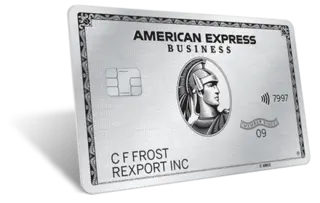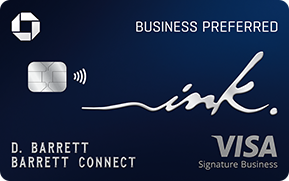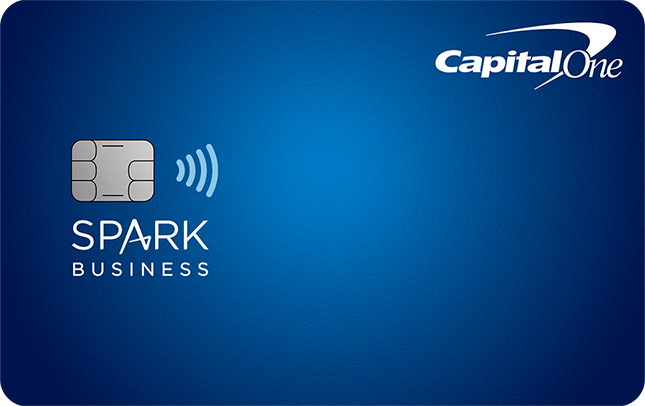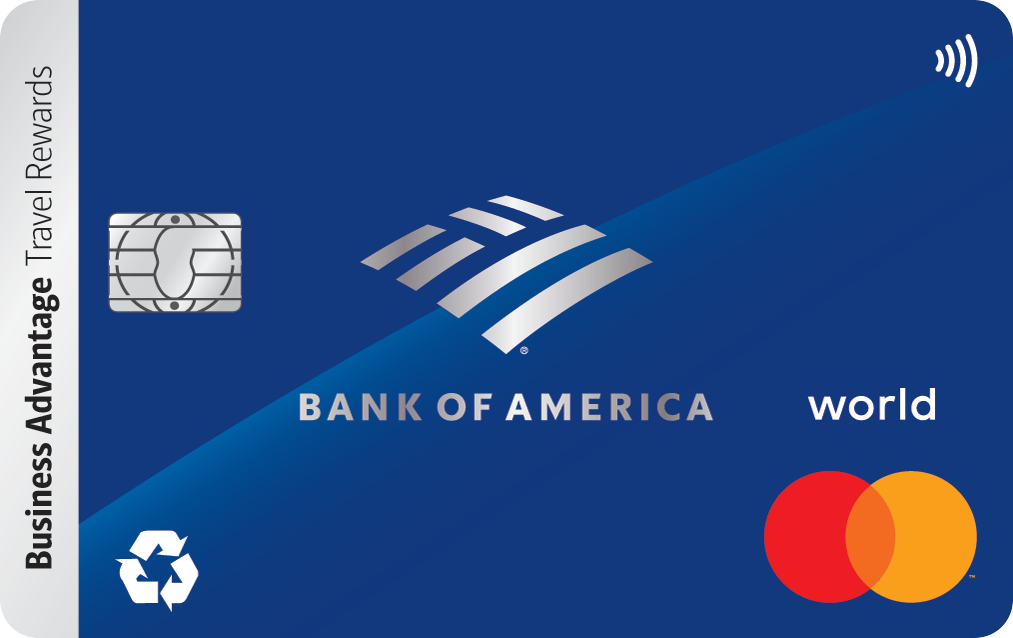
Here are our Best business credit cards for travel. In the fast-paced world of business, travel is often an essential component. Whether it’s meeting clients, attending conferences, or exploring new markets, having a reliable and rewarding business credit card can make all the difference.
In this blog post, we will explore the best business credit cards for travel, analyzing their features, benefits, and rewards programs to help you choose the perfect card for your entrepreneurial journey.
Table of Contents
For more everyday encouragement, subscribe to Good Self-Healing Habits—a 30-second newsletter delivered to your inbox each morning with uplifting messages and tips for sustainable living and business.
Best Business Credit Cards for Travel
American Express Business Platinum Card


The American Express Business Platinum Card stands out as a top choice for frequent business travelers. With its exclusive perks and travel benefits, this card offers an unparalleled experience.
The card’s welcome bonus, airport lounge access, and statement credits for travel expenses make it a valuable asset. Additionally, the card’s Membership Rewards program allows for flexible redemption options, including transfers to various airline and hotel partners.
Chase Ink Business Preferred Credit Card


The Chase Ink Business Preferred Credit Card is designed for small business owners who value flexibility and rewards. The card’s substantial sign-up bonus, along with its accelerated rewards categories, makes it an attractive option.
Moreover, it provides access to the Chase Ultimate Rewards program, which enables cardholders to redeem points for travel, transfer them to partner loyalty programs, or even utilize them for cash back.
Capital One Spark Miles for Business


With unlimited miles on every purchase, the Capital One Spark Miles for Business card is an excellent choice for businesses that frequently travel.
The card’s simple earning structure and lack of foreign transaction fees make it ideal for international ventures.
Furthermore, cardholders have the option to transfer their miles to various travel partners or redeem them for travel statement credits, offering maximum flexibility.
CitiBusiness / AAdvantage Platinum Select Mastercard


The CitiBusiness / AAdvantage Platinum Select Mastercard is specifically designed for businesses that prefer American Airlines for their travel needs.
This card offers attractive benefits like priority boarding, free checked bags, and preferred boarding for employees.
The card’s generous sign-up bonus and the ability to earn American Airlines AAdvantage miles on everyday purchases make it a top choice for loyal American Airlines flyers.
Bank of America Business Advantage Travel Rewards World Mastercard


The Bank of America Business Advantage Travel Rewards World Mastercard is an excellent option for businesses seeking simplicity and flexibility.
With no annual fee and a straightforward rewards program, this card is ideal for small businesses with moderate travel expenses. Cardholders earn points on every purchase and can redeem them for flights, hotel stays, or even cash back.
Selecting the right business credit card for travel can significantly impact your business’s bottom line and enhance your travel experience.
The American Express Business Platinum Card, Chase Ink Business Preferred Credit Card, Capital One Spark Miles for Business, CitiBusiness / AAdvantage Platinum Select Mastercard, and Bank of America Business Advantage Travel Rewards World Mastercard are all top contenders.
Carefully consider your business’s unique needs, travel patterns, and rewards preferences to choose the card that aligns best with your goals.
Remember, the right business credit card can unlock a world of opportunities for your entrepreneurial journey.
Frequently Asked Questions about Business Credit Cards


How do business credit cards for travel differ from personal credit cards?
Business credit cards for travel are specifically designed to meet the needs of businesses and entrepreneurs who frequently travel for work purposes.
While personal credit cards may offer travel rewards, business credit cards often provide additional perks and benefits tailored to business travel.
These can include higher reward rates on travel-related expenses, access to airport lounges, complimentary travel insurance, and expense management tools for tracking and categorizing business expenses.
Furthermore, business credit cards often offer features like employee cards and spending limits, allowing for better control and monitoring of business-related expenditures.
What factors should I consider when choosing a business credit card for travel?
When selecting a business credit card for travel, consider the following factors:
Rewards Program
Assess the rewards structure, including earning rates, redemption options, and whether the rewards align with your business travel patterns and preferences.
Travel Benefits
Look for perks like airport lounge access, travel insurance, concierge services, and statement credits for travel-related expenses. Consider which benefits are most valuable to you and your business.
Annual Fees
Evaluate the annual fee in relation to the benefits and rewards offered. Determine if the benefits outweigh the cost of the fee.
Foreign Transaction Fees
If you frequently travel internationally, choose a card that doesn’t charge foreign transaction fees to avoid unnecessary expenses.
Payment Terms
Consider the payment terms, interest rates, and the ability to carry a balance if needed.
Additional Business Features
Evaluate any additional features like expense tracking, integration with accounting software, or tools for managing employee spending.


Can I earn rewards on non-travel expenses with business credit cards for travel?
Yes, many business credit cards for travel offer rewards on non-travel expenses as well. These cards often provide higher reward rates for specific spending categories such as office supplies, advertising, telecommunications, or gas purchases.
By leveraging these bonus categories, you can maximize your rewards potential and earn valuable points or miles even when you’re not traveling.
How can I maximize the benefits of a business credit card for travel?
To maximize the benefits of your business credit card for travel, consider these strategies:
Consolidate Expenses
Use your business credit card for all eligible business-related expenses to earn rewards on a wide range of purchases.
Take Advantage of Welcome Bonuses
Capitalize on the sign-up bonuses offered by credit card companies. Plan your expenses strategically to meet the spending requirements and earn a substantial bonus.
Utilize Travel Benefits
Make use of airport lounge access, travel credits, and other perks to enhance your travel experience and save on travel-related expenses.
Redeem Rewards Wisely
Prioritize redeeming your rewards for travel-related expenses such as flights, hotel stays, or car rentals to maximize their value. Explore transfer options to partner loyalty programs for increased redemption flexibility.
Stay Informed
Regularly review the card’s benefits and stay updated on any changes or new offers to make the most of your card’s features.
Can I use a business credit card for personal expenses?
While it’s not prohibited to use a business credit card for personal expenses, it’s generally recommended to keep personal and business expenses separate for accounting and tax purposes.
Mixing personal and business expenses can complicate expense tracking, budgeting, and reporting. It’s advisable to maintain a dedicated personal credit card for personal expenses and use your business credit card solely for business-related transactions.
However, if you do occasionally use your business credit card for personal expenses, make sure to keep meticulous records and clearly separate those expenses when reconciling your accounts.
This will help you maintain accurate financial records and simplify the process of tracking and categorizing expenses for tax purposes.
Additionally, using a business credit card for personal expenses may affect your ability to accurately gauge your business’s financial performance and may complicate expense reporting to your accountant or tax advisor.
It’s best to consult with a financial professional to understand the implications and ensure compliance with any relevant tax laws or regulations.


Terms and Conditions to watch out for
Moreover, some business credit cards may have specific terms and conditions regarding the usage of the card for personal expenses.
Be sure to review the cardholder agreement or contact the credit card issuer for clarification on their policies.
Ultimately, keeping your personal and business expenses separate will help maintain clarity, organization, and compliance with accounting and tax requirements.
It’s always wise to consult with a financial advisor or accountant who can provide tailored guidance based on your specific circumstances and the applicable regulations in your jurisdiction.
How do I increase my credit to get the best business credit card?
Increasing your credit to qualify for the best business credit cards requires a systematic approach and a focus on improving your creditworthiness.
Here are some steps you can take to boost your credit and increase your chances of obtaining the best business credit card:
Check your credit reports
Start by obtaining copies of your credit reports from the major credit bureaus (Equifax, Experian, and TransUnion). Review the reports thoroughly to ensure they are accurate and free of errors. If you identify any inaccuracies, dispute them promptly to have them corrected.


Pay your bills on time
Consistently making on-time payments is one of the most crucial factors in building good credit. Set up payment reminders or automatic payments to ensure you never miss a due date.
Paying all your bills on time, including personal and business expenses, helps establish a positive payment history.
Reduce credit utilization
Aim to keep your credit utilization ratio—the amount of credit you’re using compared to your credit limit—as low as possible. High utilization can negatively impact your credit score.
To reduce it, pay down existing balances and avoid maxing out your credit cards. Keeping your utilization below 30% is generally recommended.
Build a credit history
If you’re new to credit or have a limited credit history, consider establishing a track record of responsible credit usage. You can achieve this by opening a business credit card specifically designed for individuals with limited credit or by becoming an authorized user on someone else’s credit card.
Diversify your credit
Lenders like to see a mix of different types of credit accounts on your credit report. If you only have credit cards, consider adding other types of credit, such as a small business loan or a line of credit.
This demonstrates your ability to manage different types of credit responsibly.
Keep old accounts open
The length of credit history is an essential factor in determining your creditworthiness. Avoid closing old credit card accounts, especially those with no annual fees, as they contribute to the average age of your accounts.
Closing old accounts can shorten your credit history and potentially lower your credit score.
Minimize new credit applications
Each time you apply for new credit, it results in a hard inquiry on your credit report, which can slightly lower your credit score.
Limit the number of credit applications you make, particularly within a short period, as it may raise concerns about your financial stability.
Monitor your credit
Regularly check your credit score and monitor your credit reports to stay updated on any changes. Many credit card issuers and financial institutions provide free credit score monitoring services.
Being aware of your credit status allows you to identify areas that need improvement and take appropriate action.
Remember, building good credit takes time and consistent effort.
By implementing these strategies, you can enhance your creditworthiness and increase your chances of qualifying for the best business credit cards with attractive rewards, benefits, and features.
How to Get a Business Loan & Credit
Thinking about starting a business? We wrote a post for you on how to come up with a business plan for the best chances to get a business loan, check it out right here!
Youtube Video: Best Credit Cards For Business and Travel
For more everyday encouragement, subscribe to Good Self-Healing Habits—a 30-second newsletter delivered to your inbox each morning with uplifting messages and tips for sustainable living and business.
Final Thoughts on Business Credit Cards for Traveling
Business credit cards for travel offer valuable benefits and rewards tailored to the needs of entrepreneurs and businesses on the move.
By considering factors such as rewards programs, travel benefits, fees, and additional features, you can select a card that aligns with your business’s travel patterns and goals.
Remember to maximize the benefits by consolidating expenses, taking advantage of welcome bonuses, utilizing travel perks, and redeeming rewards wisely.
While using a business credit card for personal expenses is generally discouraged, if you do so occasionally, it’s crucial to maintain clear separation and accurate record-keeping to ensure proper accounting and compliance.
Choosing the right business credit card for travel can not only help streamline your travel experience but also unlock new opportunities for growth and financial rewards for your business.
With careful consideration and strategic utilization, these cards can be powerful tools in your entrepreneurial journey.
